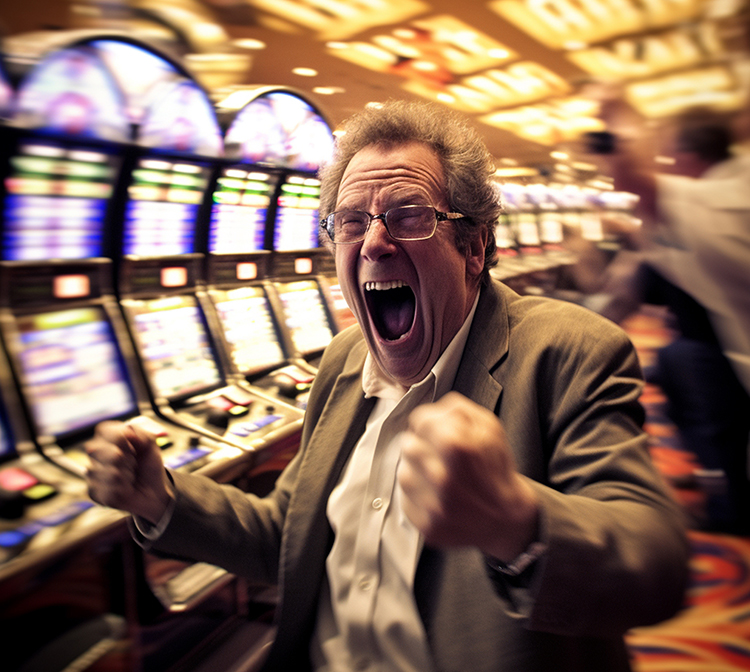The word “jackpot” has woven itself into the fabric of modern life, symbolizing great fortune and unexpected windfalls. Its origins, however, trace back to the world of gambling, where it has evolved over the decades. In this article, we’ll explore the fascinating history of the term “jackpot,” how it transitioned from poker to slot machines, and its impact on culture and language.
The Birth of Jackpot: Poker’s Influence
The Early Days of Poker
Poker, as we know it today, emerged in the early 19th century, primarily in the United States. The game evolved from various European card games, and its rules were refined as it spread across the country. The terminology used in poker was heavily influenced by the game’s evolution and the players’ desire to enhance the thrill of competition.
The Pot and Its Evolution
In poker, the term “pot” refers to the total amount of money wagered by players during a hand. The pot grows larger as players continue to bet, enticing others to join in for a chance at a significant payout. Initially, the pot could be won by having the best hand or forcing other players to fold. However, the introduction of specific conditions changed the dynamics of the game, leading to the birth of the jackpot concept.
The “Jack” Connection
The term “jackpot” likely originated from a specific rule in poker: players needed to have a pair of jacks or better to win the pot. This rule added a layer of strategy and heightened anticipation among players. The larger the pot became, the more thrilling it was to play, and the term “jackpot” was coined to encapsulate this experience. It represented not just the monetary value but the excitement and suspense that came with it.
The Transition to Slot Machines
The Rise of Slot Machines
As the popularity of gambling grew, so did the evolution of gaming machines. In the late 19th century, the first mechanical slot machines were invented. These devices quickly became popular in bars and saloons, offering a new form of entertainment. The original slot machines had simple designs, featuring symbols like fruits and bells.
The First Jackpot
The first true “jackpot” in slot machines emerged in 1895 when Charles Fey invented the Liberty Bell, a machine featuring three spinning reels. When players aligned the symbols of three bells, they won the maximum payout, which was a significant sum at the time. This marked a pivotal moment in gaming history, as the concept of hitting a jackpot became associated with the thrill of chance and luck.
The 20th Century Boom
As technology advanced, so did the design of slot machines. By the mid-20th century, electromechanical slot machines had entered the market, offering players even more engaging experiences. These machines began to feature larger jackpots, and the term “jackpot” became a standard part of the casino lexicon. Advertisements highlighted the possibility of winning life-changing amounts, further embedding the concept in popular culture.
The Cultural Impact of Jackpot
Jackpot in Popular Culture
The term “jackpot” transcended the gambling world and found its way into everyday language. It became a metaphor for any significant achievement or unexpected success. People began to use “jackpot” in various contexts, from landing a dream job to discovering a hidden talent.
Media and Entertainment
Movies, television shows, and music have all embraced the concept of the jackpot. Films like “Rain Man” and “Ocean’s Eleven” featured iconic gambling scenes where characters sought their fortunes in the casino. These portrayals not only popularized the thrill of gambling but also romanticized the idea of hitting the jackpot.
The Influence of the Internet
With the rise of online casinos in the late 1990s and early 2000s, the term “jackpot” gained even more traction. Virtual slot machines and games offered players the chance to win substantial sums with a click of a button. Online gaming communities thrived, sharing stories of big wins and celebrating the joys of hitting the jackpot.
The Psychology Behind the Jackpot
The Thrill of Chance
The allure of the jackpot lies in the excitement of chance. Psychologically, the concept of winning big taps into our desire for risk and reward. The possibility of a life-changing win can be incredibly appealing, driving people to take chances in hopes of striking it rich.
The Role of Emotion
Winning a jackpot can trigger a range of emotions, from elation to disbelief. The adrenaline rush that accompanies a big win creates memorable experiences that players often cherish. These emotional highs can lead to a phenomenon known as “near-miss effect,” where players feel motivated to continue playing, believing they are close to winning again.
The Jackpot Today
Modern Slot Machines and Jackpots
Today, slot machines are more advanced than ever, featuring digital screens, immersive graphics, and intricate storylines. Progressive jackpots have become a significant attraction, allowing players to contribute to a growing prize pool that can reach staggering amounts. The thrill of chasing a massive jackpot continues to captivate players around the world.
Online Gambling and the Future
The rise of online gambling has further revolutionized the concept of the jackpot. Players can now access a vast array of games and jackpots from the comfort of their homes. Online casinos often offer enticing bonuses and promotions, increasing the chances of winning big. The future of jackpots appears bright, with innovations in technology promising to enhance the gaming experience even further.
The journey of the term “jackpot” from the poker tables of the early 20th century to its status as a cultural phenomenon is a testament to its enduring appeal. It represents not only the excitement of gambling but also the broader human desire for success and fortune. As we continue to explore the world of gaming, the concept of hitting the jackpot will undoubtedly remain a central theme, captivating our imaginations and inspiring dreams of what could be. Whether in a casino, an online platform, or simply in everyday life, the idea of the jackpot will continue to resonate, reminding us of the thrill of chance and the allure of unexpected rewards.



